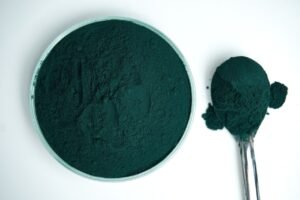Japan consistently ranks among the countries with the highest life expectancy in the world. Their impressive longevity is attributed to a combination of factors, from diet and lifestyle to cultural practices and healthcare. One dietary element that plays a significant role in this longevity is seaweed. However, in this blog, we’re going to explore a fascinating alternative to seaweed: spirulina. Known for its incredible health benefits, spirulina could offer similar advantages and might be a valuable addition to your diet for a longer, healthier life. The Longevity Secrets of Japan.

The Japanese Longevity Formula
To see how spirulina might support longevity, it helps to look at why Japanese people live so long. One key factor is diet. Traditional Japanese meals include plenty of vegetables, fish, and fermented foods. Seaweed, a common ingredient, packs vitamins, minerals, and antioxidants.
Lifestyle matters too. People in Japan stay active through daily habits like walking, biking, and even practicing Tai Chi. These routines promote physical and mental well-being.
In addition, Japan’s strong healthcare system emphasizes prevention. Early checkups and regular screenings help detect health issues before they become serious.
Finally, cultural values play a major role. The concept of Ikigai—finding purpose in life—keeps people motivated and engaged. Close social ties and community support also boost emotional health, which contributes to a longer, healthier life.
Spirulina: A Nutritional Powerhouse
Spirulina, a type of blue-green algae, is often touted as a superfood due to its exceptional nutritional profile. Here’s how it compares to seaweed and why it could be a great alternative or addition to your diet:
Nutrient Density: Spirulina is packed with protein, essential amino acids, and vitamins, including B vitamins, vitamin K, and vitamin E. It also contains important minerals such as iron, magnesium, and potassium. This dense nutritional profile can help meet many of the same dietary needs that seaweed does.
Antioxidants: Spirulina is rich in antioxidants, particularly phycocyanin, which helps combat oxidative stress and inflammation. This can contribute to overall health and longevity by protecting cells from damage.
Digestibility: Unlike some types of seaweed, spirulina is highly digestible and easy to incorporate into various dishes, such as smoothies, soups, and salads.
Detoxification: Spirulina has natural detoxifying properties that can help remove heavy metals and toxins from the body, promoting better health and potentially reducing the risk of chronic diseases.
How to add Spirulina into Your Diet? The Longevity Secrets of Japan.
Adding spirulina to your diet is straightforward and can be done in a variety of ways:
Smoothies: Blend a teaspoon of spirulina powder into your favorite fruit smoothie for a nutrient boost.
Soups: Stir spirulina powder into soups or broths for added nutrition.
Salads: Sprinkle spirulina powder over salads for a unique twist and extra health benefits.
Supplements: If you prefer a more straightforward approach, spirulina is available in tablet or capsule form.
End words: The Longevity Secrets of Japan.
While traditional Japanese diets include seaweed as a cornerstone for health and longevity, spirulina offers a powerful alternative with its impressive nutritional benefits. By incorporating spirulina into your diet, you can harness its potential to support a longer, healthier life. Embracing such superfoods, along with other elements of a balanced lifestyle, can contribute to achieving longevity and well-being similar to that enjoyed by many Japanese people.
NOTE:- IT IS ALWAYS RECOMMENDED TO CONSULT YOUR HEALTH CARE PROFESSIONAL. ALL DATA SHARED HERE ARE FOR EDUCATIONAL PURPOSES ONLY





